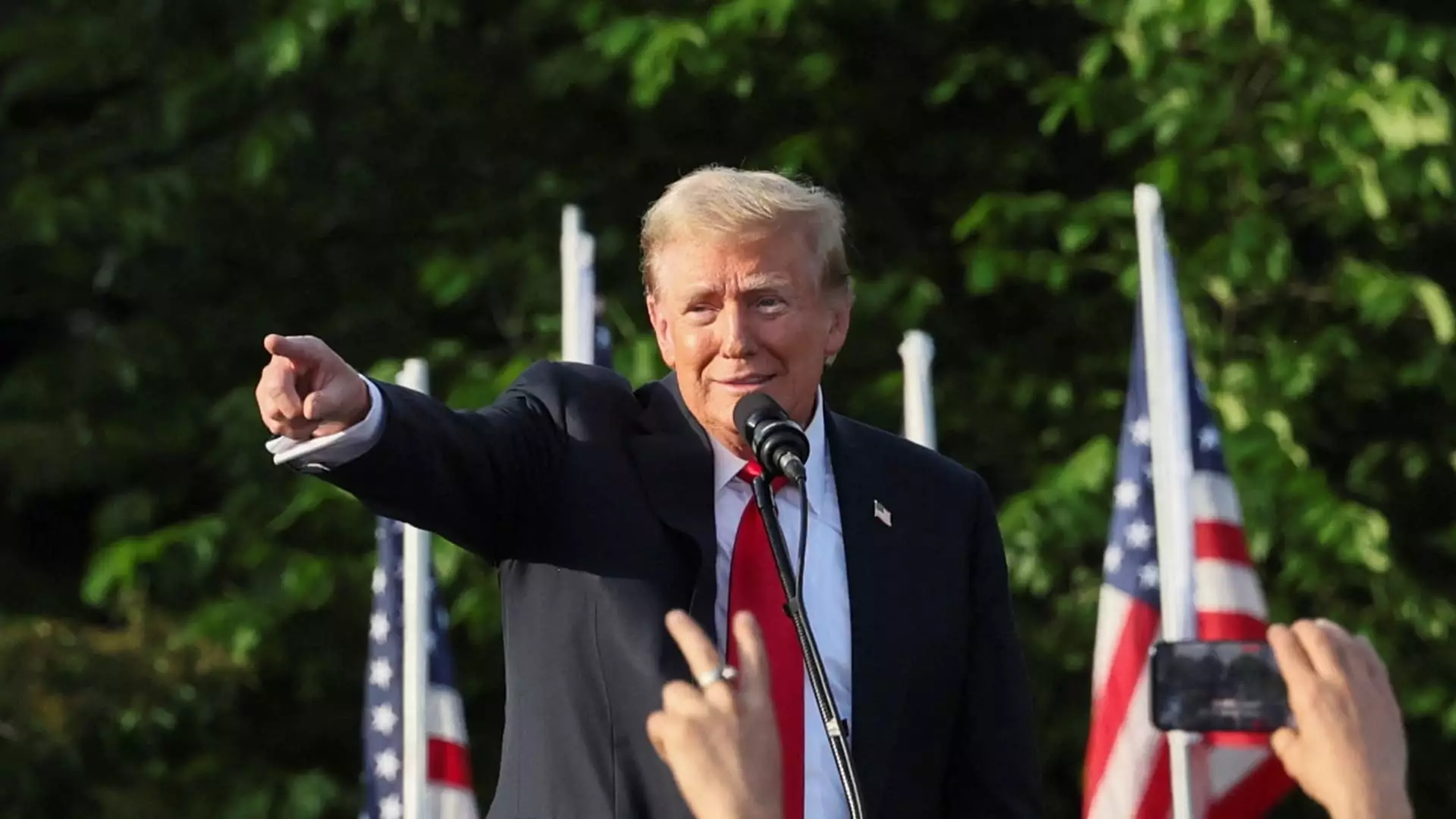During a recent event in Arizona, Republican presidential candidate Donald Trump made it clear that he is considering imposing tariffs on countries, specifically China, that do not make an effort to curb the flow of undocumented immigrants into the United States if he wins the upcoming U.S. election in November. This statement has raised eyebrows and sparked discussions about the potential implications of such a move on the global economic landscape.
The issue of border security and immigration has been a contentious topic in the United States for years, with both Republicans and Democrats presenting differing perspectives on how to address the challenges posed by undocumented migration. With Trump’s threat of imposing tariffs on countries like China, the conversation around immigration policy and economic consequences has been reignited.
It is evident that Trump’s remarks are politically motivated, given the timing of his statement in the lead-up to the November election. By leveraging the sensitive issue of immigration, Trump is attempting to appeal to his voter base and position himself as a tough leader who will take a hardline stance on border security if re-elected. However, the implications of imposing tariffs on countries like China could have far-reaching implications beyond the realm of immigration.
The threat of imposing tariffs on countries that do not take action on curbing undocumented immigration raises concerns about the potential escalation of trade disputes and strained international relations. Countries like China, which are major trade partners with the United States, could retaliate with their tariffs, leading to a trade war that could have detrimental effects on the global economy. Trump’s approach to using tariffs as a tool for enforcing immigration policies could set a dangerous precedent for future diplomatic relations.
Legal and Ethical Concerns
Trump’s proposed strategy of imposing tariffs on countries to address immigration issues raises legal and ethical questions about the use of economic sanctions in response to social and humanitarian challenges. It remains to be seen whether such a move would be within the boundaries of international trade laws and whether it aligns with ethical considerations of addressing migration-related issues. The potential repercussions of implementing tariffs on countries for failing to address undocumented immigration warrant a thorough analysis of the legal and ethical implications.
Donald Trump’s recent threat to impose tariffs on countries that do not curb undocumented immigration reflects a complex interplay between political motivations, international relations, legal considerations, and ethical concerns. The implications of using tariffs as a tool for addressing border security challenges could have far-reaching consequences that extend beyond economic implications. As the U.S. election approaches, the debate surrounding immigration policy and trade relations is likely to intensify, with Trump’s statements serving as a focal point for discussions on the intersection of politics and economics.


Leave a Reply